
Kraig Scarbinsky/DigitalVision/Getty Images
The manufacturer describes Corn Pops as a “sweetened corn cereal,” so it’s reasonable to think it may not be the healthiest cereal. But it's also not the worst. This cereal is a good source of all the key vitamins and minerals, and comes close to providing enough fiber, but it’s slightly high in sugar and falls short in protein when compared to breakfast cereal recommendations from Clemson University’s Cooperative Extension.
Calories, Protein and Fat Per Serving
The calories you get from breakfast rev-up your metabolism and provide the energy to carry you to the next meal. For this reason, Columbia University suggests eating a breakfast that has 350 to 500 total calories. Since cereal is just one part of a complete breakfast, Clemson Cooperative Extension recommends getting 100 to 120 calories from a serving. One cup of Corn Pops has 120 calories. The same portion supplies 1 gram of protein, which falls short of Clemson’s recommended 2 or more grams per serving of cereal. Eating the cereal with one-half cup of skim milk will, however, gives you an extra protein boost of 4 grams. Like skim milk, Corn Pops contain barely a trace of fat, although a balanced breakfast should include up to 3 grams of fat.
Fortified With Fiber
Fiber keeps your digestive tract regular, balances blood sugar and helps lower cholesterol. In fact, fiber is associated with a lower risk of cardiovascular disease, according to the January 2014 issue of the “American Journal of Cardiology.” To reach your daily intake -- 25 grams daily for women and 38 grams for men -- your cereal should contribute at least 3 grams, but preferably 5 grams of fiber per serving, according to Clemson Cooperative Extension. The main ingredient in Corn Pops is milled corn, so it’s not a whole-grain product. However, soluble corn fiber is added to the cereal. A 1-cup serving contains 2.5 grams of total fiber.
Reasonable Carbs, Slightly High Sugar
One cup of Corn Pops supplies 27 grams of total carbohydrates, which includes 9 grams of sugar. Some of it comes naturally from corn, but the second ingredient on the list is sugar, which indicates it has added sugar. The total sugar in Corn Pops is a bit high based on Clemson Cooperative Extension's recommendation to limit sugar in cereal to 8 grams or less. For comparison, a list of sugar in breakfast cereals from the U.S. Department of Agriculture's National Nutrient Database puts Corn Pops right in the middle: Out of 342 cereals, about half have more and half contain less total sugar.
Right Amount of Essential Nutrients
Your breakfast cereal should provide 10 to 25 percent of your recommended daily value of key nutrients, such as iron and B vitamins, especially folate and vitamins B-6 and B-12. Corn Pops meets that standard, according to the cereal's nutrition facts panel, so it’s a good source of nutrients. Like many other cereals, it fills your nutritional needs through fortification with zinc, iron, B vitamins and vitamins A, C and D. Just one-half cup of skim milk adds 15 percent of the daily value of calcium, based on eating 2,000 calories daily. Milk also boosts the amount of zinc and vitamins A and D.
Related Articles

How Much Whole Grain Should You Eat a ...

The Nutrition of Stone Ground Corn
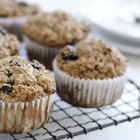
Bran Muffins and Fiber
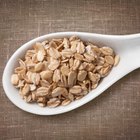
Does Instant Oatmeal Have Less Fiber ...

Starbucks' new dairy-free drink is ...
The Best Fruits for Breakfast
Nutrition to Help Your Child Grow Taller

Which Is Highest in Fiber: Carrots, ...

Healthy Hot Cocoa for Toddlers
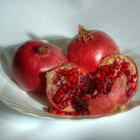
How Much Pomegranate Juice Should One ...

Premium Saltine Crackers Nutrition

The Paleo Diet and Coffee
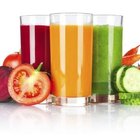
Nutrition Drinks for Diabetics

Foods That Keep You Awake During the Day
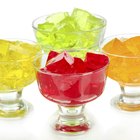
Fat-Free and Sugar-Free Jell-O Pudding ...

Protein & Carbohydrates in Breakfast
The Best High Starch Foods to Eat for ...
How Many Calories are in Pistachio ...

Nutritional Value of Red-Skin Potatoes

A Daily Meal Plan With Protein, Grains, ...
References
- Kellogg’s: Kellogg’s Corn Pops Cereal
- Columbia University: Go Ask Alice: Breakfast: The First Chance to Fill Your Tank
- Clemson Cooperative Extension: Choosing Breakfast Cereals
- USDA National Nutrient Database: Nutrient Lists: Sugar: Breakfast Cereals
- University of Illinois at Chicago: Getting Enough Fiber in Your Diet Does not Have to be Like This
- American Journal of Cardiology: Associations of Dietary Fiber Intake With Long-Term Predicted Cardiovascular Disease Risk and C-Reactive Protein Levels (From the National Health and Nutrition Examination Survey Data, 2005—2010)
Writer Bio
Sandi Busch received a Bachelor of Arts in psychology, then pursued training in nursing and nutrition. She taught families to plan and prepare special diets, worked as a therapeutic support specialist, and now writes about her favorite topics – nutrition, food, families and parenting – for hospitals and trade magazines.
Photo Credits
Kraig Scarbinsky/DigitalVision/Getty Images